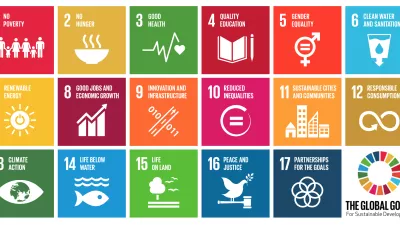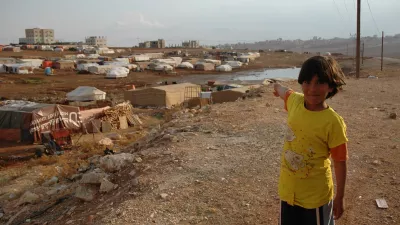Acting on Data
Discover stories from around the world about the people turning IHME evidence into health impact.Bill Gates: GBD ‘best chance of saving lives’
The Global Burden of Disease study (GBD) has been compared to many landmark events: the advent of the encyclopedia, the mapping of the human genome, and the first landing on the moon.
Progress and prospects: Health-related Sustainable Development Goals
These updated findings are important to understanding today’s gains and gaps for the health-related Sustainable Development Goals (SDGs), and are essential for decision-makers as they aim to improve the health of populations. We have highlighted some uses and coverage of last year’s SDG report and paired them with particularly interesting or notable findings from GBD 2016.
Neglected disease burden compounded by the impact of conflict in the Eastern Mediterranean Region
In a new series of papers published yesterday, the GBD Eastern Mediterranean Region (EMR) collaborators describe the disease burden of the 22 countries that make up the EMR. While wars and civil unrest are currently the primary cause of death and disability in many Middle Eastern countries, the authors of the studies point out that other pressing issues are also multiplying both due to and alongside the ongoing unrest.
FIA Foundation using burden of disease data to make streets safer for youth in Africa
The FIA Foundation’s recent report, “Step Change: An Action Agenda on Safe Walking for Africa’s Children,” uses data from the Global Burden of Disease (GBD) study to highlight the high burden of road traffic injuries among children in sub-Saharan Africa. The FIA Foundation is a UK-based charity that promotes road safety, the environment, and sustainable transport, and funds research on motor sport safety.
Michael Bloomberg uses burden of disease data to focus attention on NCDs
In his annual letter on philanthropy, Michael Bloomberg – founder of Bloomberg Philanthropies and former mayor of New York City – emphasizes the importance of following the data no matter where it leads us in global health. And by drawing on data from the GBD study, Bloomberg and his organization find themselves looking squarely at non-communicable diseases (NCDs), and their growing impact worldwide.
New study reveals inequities in healthcare access and quality
A new analysis by Global Burden of Disease collaborators highlights that people are still dying from preventable, treatable causes, and reveals inequitable global progress in improving healthcare access and quality. Having already sparked global interest, results from this analysis are a reminder that development is not the only indicator of healthcare access and quality, and that improvements can occur more rapidly, particularly in countries that are lagging behind.
New book highlights influence of global health financing on burden of disease
With rising threats from non-communicable diseases and emerging infectious diseases, effective global health leadership is vital. In their new book, Governing Global Health: Who Runs the World and Why, Chelsea Clinton and Devi Sridhar use findings on global health spending from the Institute for Health Metrics and Evaluation (IHME) to better understand the different actors in the global health space and look at how well they are helping address the world’s health problems.
New paper focuses attention on health inequality in the US
A new study from IHME contributors on “Inequalities in life expectancy among US counties, 1980 to 2014” has provoked widespread attention and discussion from media organizations, decision-makers, and the public.While life expectancy has increased for the US as a whole, the inequality among counties and regions was far more dramatic than most expected, with differences of as much as 20 years between the counties with the highest and lowest life expectancies.
Government of Ethiopia using Global Burden of Disease evidence to achieve equity and access to health care for all
In Ethiopia the Global Burden of Disease (GBD) study is being used to support the Ministry of Health’s drive to strengthen evidence-based decision-making, in collaboration with key partners.
Global health decision-makers face “uncertain, dramatic, unprecedented” moment
Those who influence decisions on development assistance for health are facing a “very uncertain, dramatic moment that is unprecedented,” said Stephen Morrison, Senior Vice President and Director of the Global Health Policy Center at the Center for Strategic and International Studies, speaking April 20 at a policy briefing in Washington, DC. The discussion focused on two newly published papers on financing global health by the Institute for Health Metrics and Evaluation (IHME) at the University of Washington.
Global Burden of Disease findings helping make Stockholm County healthier
In Sweden, the Department of Public Health Sciences, Karolinska Institute, and the Center for Epidemiology and Community Medicine (CES) collaborated with IHME to develop estimates for the burden of disease in Stockholm County. These are now a key feature of the county’s Public Health Guide, which serves as a valuable reference for Stockholm’s government and civil society as they work to promote health and prevent disease.
New burden of tobacco paper provides novel insights and tools for policymakers
Earlier this month, the GBD 2015 Tobacco Collaborators published a new report on smoking prevalence and the global burden of tobacco use in The Lancet.
Brookings Institute uses Global Burden of Disease data to explore dangers of smoking
Some people smoke and live seemingly long lives. Yet tobacco is unquestionably harmful. How do we reconcile the two? A recent post published on the Brookings Institute’s Future Development blog used Global Burden of Disease data to educate readers about “selection bias,” or the human tendency to focus on anecdotal accounts that defy the trends while ignoring the much larger body of evidence that supports them.
Using a new network of collaboration to reduce burden of disease in Europe
The World Health Organization Regional Office for Europe (WHO/Europe) and its members view burden of disease data as an essential component of population health monitoring, and an important indicator for policy change. As a result, these bodies have joined forces with the Institute for Health Metrics and Evaluation (IHME) to carry out detailed disease burden analyses in the region.
A new way of measuring development helps assess health system performance
During his recent visit to IHME’s offices, we sat down with Dr. Yohannes Kinfu, member of the Global Burden of Disease (GBD) study’s Scientific Council and the person who came up with the idea that led to the creation of the Socio-demographic Index (SDI), a new metric for measuring development. SDI allows people to compare countries’ health outcomes and the performance of health systems, and better understand what tomorrow’s health landscape will look like.


